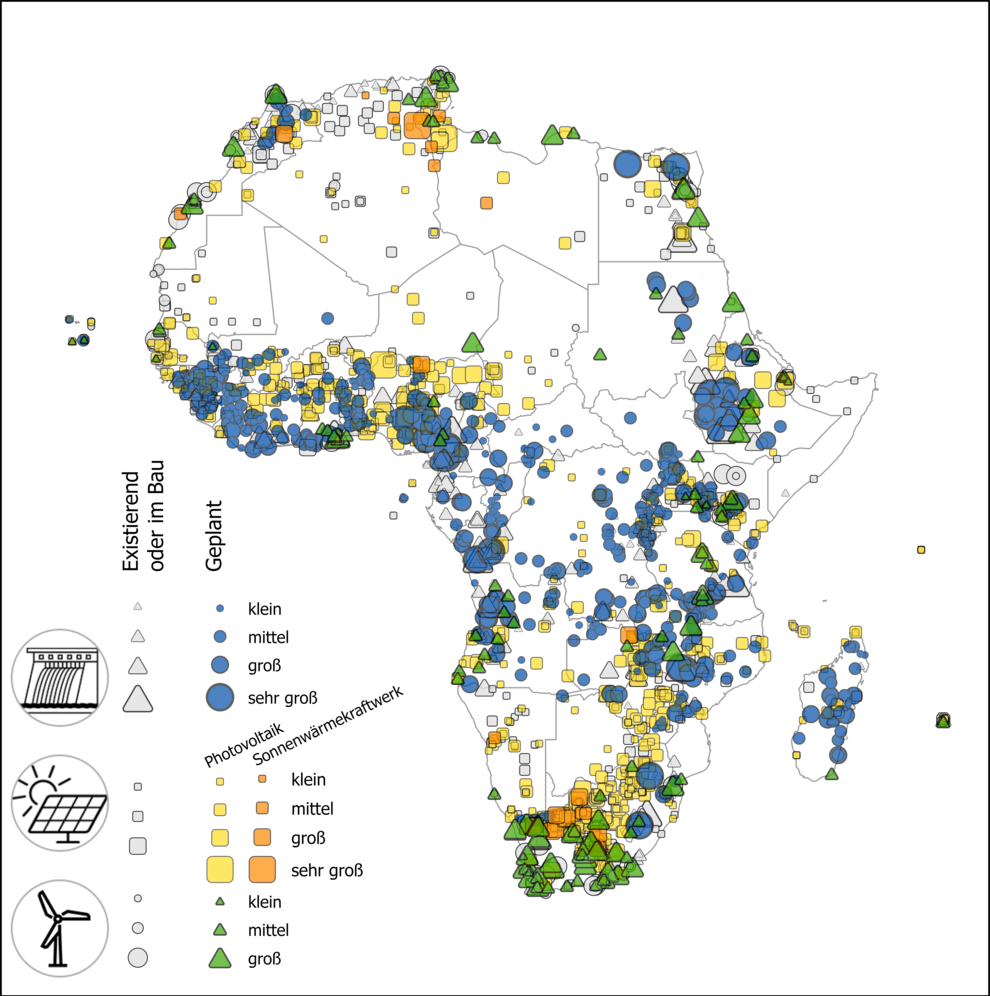According to a collaborative study conducted by the Universities of Tübingen, Osnabrück, Rwanda, and the Senckenberg Society for Nature Research, 80% of Africa's energy needs could be met by renewable sources by 2040 if all currently planned power plants were constructed and their capacity was fully utilized.
 Existing and planned renewable electricity power plants in Africa. Image Credit: University of Tübingen
Existing and planned renewable electricity power plants in Africa. Image Credit: University of Tübingen
The journal Nature Reviews Earth & Environment has published the study.
There is enough sun, wind, and water on the continent. Many African countries could skip the age of fossil fuels. But of course, a few things would have to be done to achieve that.
Rebecca Peters, Lead Author and Doctoral scientist, Geosciences Department, University of Tübingen.
Under the guidance of Professor Christiane Zarfl and collaborators in Germany and Rwanda, Peters assembled all accessible information on African renewable energy power plants into an extensive database; following this, she assessed pertinent scientific research on the topic.
Africa is seeing a significant increase in the use of renewable energy sources, thanks to precipitously declining production costs for wind and solar power. Nonetheless, in the upcoming decades, it is anticipated that the continent's energy needs will rise significantly.
Sub-Saharan Africa is seeing a higher population increase rate than other regions, with 2.6% of the population now lacking access to electricity. One advantage of renewable energy sources, as noted by the authors, is the ability to run solar and wind power plants decentralized and in local networks without being connected to overhead power lines.
This analysis indicates a large-scale grid extension into rural areas would be unnecessary and costly. Additionally, the efficient functioning of currently operating power plants, reduced energy losses during the transmission of electricity, and an appropriate mix of energy sources to offset variations in solar and wind energy production all present opportunities for increased energy production in Africa.
We are, however, skeptical about the unchecked expansion of hydroelectricity, although Africa is the continent with the world's least exploited reserves of this form of energy, and hydropower currently accounts for 63 percent of renewable energy production, a great expansion of dams and lakes would irreversibly change the currently free-flowing rivers and would also force many residents to relocate.
Dr. Klement Tockner, Professor and Director General, Senckenberg Nature Research Society
Tockner is also an aquatic ecologist and co-author of the study. To ensure that all Africans sustainably have access to renewable electricity, nations that rely heavily on gas, like Algeria, Tunisia, and Libya or coal, must give up on building new gas and coal-fired power plants in the future and switch to clean energy production.
Structural change is only possible by doubling current investments by 2030 and investing an additional 30 billion dollars a year to ensure access to electricity for all. Investments from abroad would be needed; since the noughties, China has played an increasingly important role alongside the USA and European countries.
Dr. Jürgen Berlekamp, Institute of Environmental Systems Research, University of Osnabrück.
Journal Reference:
Peters, R., et.al., (2024). Sustainable pathways towards universal renewable electricity access in Africa. Nature Reviews Earth & Environment. doi.org/10.1038/s43017-023-00501-1
Source: https://uni-tuebingen.de/en/